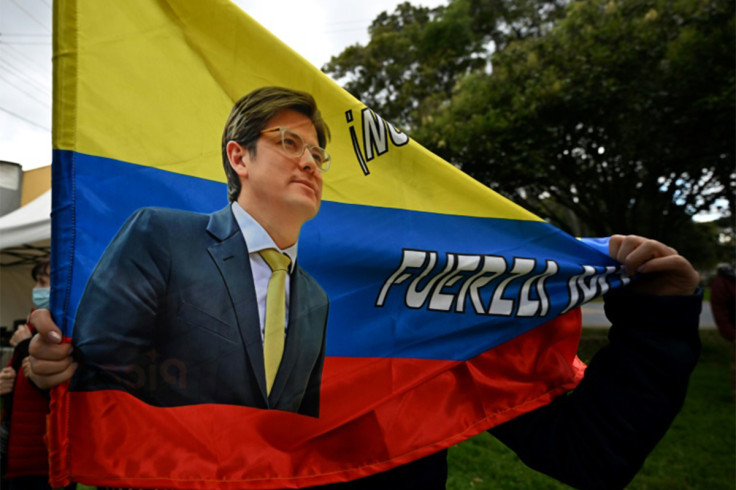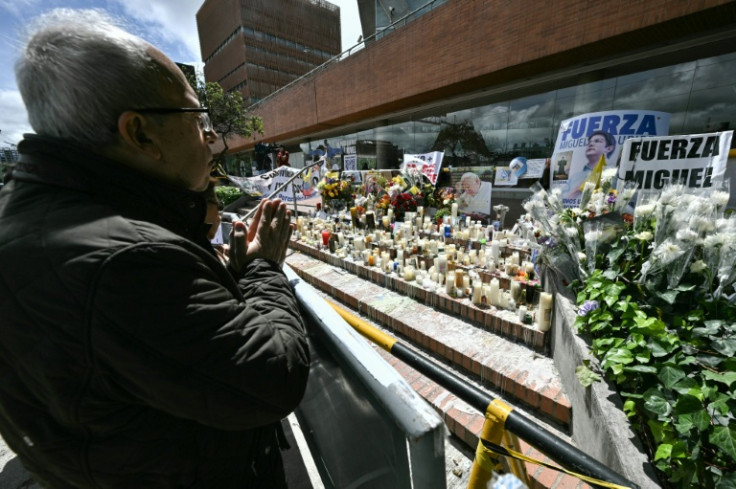Who is Miguel Uribe? Why His Death Sparks Fear of Colombia's Political Turmoil
Miguel Uribe's ambitions were high, but his death now casts a dark, unsettling shadow over Colombia's political future and its fragile democracy

Miguel Uribe Turbay was becoming a well-known figure in Colombian political circles. At the age of 39, he had already been a senator, had made a name for himself as a vocal critic of President Gustavo Petro, and was gearing up for a presidential run in 2026.
As the grandson of former President Julio César Turbay who served from 1978 to 1982, Miguel was born into a political dynasty. He studied law at the University of Los Andes and later obtained a master's degree in public administration from Harvard in 2022.
By the time he was 25, he had already won a seat on Bogotá's city council, starting a career that would be characterized by both drive and scandal.
The Day Everything Changed
The path of his life took a fatal direction on 7 June when he attended a political event in Bogotá. Reports from BBC News indicate that Uribe received three bullets which hit his head twice and his leg once while the audience was in the middle of the event.
The medical team conducted multiple emergency surgeries at the hospital but he remained in intensive care the entire time. His life battle lasted more than two months until his health deteriorated during the weekend before he passed away on Monday.
The death of this politician has caused widespread mourning in Colombia while sparking new worries about political campaign safety in the nation.
A Nation in Mourning and Shock
Maria Claudia Tarazona, Uribe's wife, expressed her grief on social media, referring to him as 'the love of my life' and promising to take care of their kids.
Vice President Francia Márquez condemned the attack and emphasized that communication, not violence, is the key to a functioning democracy as condolence messages poured in from all over Colombia.
Before Uribe died, a 15-year-old suspect was taken into custody at the scene and charged with attempted murder. Seven suspected members of a local gang from a nearby district were apprehended as a result of the shooting, which triggered a larger police operation, according to Colombia Reports. Investigators have not yet confirmed the reason behind Uribe's targeting, but a number of suspects are currently in custody.

Old Wounds Resurface
This assassination served as a sobering reminder of darker times for many Colombians, in addition to being the death of a politician. Political killings used to be a common nightmare, particularly during the 1980s and 1990s when drug cartels and paramilitary groups hunted down presidential candidates.
Even though there was less widespread fighting after the 2016 peace deal with the Colombian Revolutionary Armed Forces, Uribe's passing shows that political violence has not gone away. It has stoked concerns about going back to a time when candidates, regardless of their beliefs, could be assassinated before the electorate had a chance to voice their opinions.
Why His Death Sends a Warning
Although Miguel Uribe was not considered the front-runner for the presidency in 2026, his murder has rocked the political establishment. It poses serious concerns: How safe are the others if someone who isn't the front-runner can be targeted? The 1948 assassination of progressive leader Jorge Eliécer Gaitán is remembered in Colombian history as a turning point. The same could be said of Uribe's murder: It serves as a reminder that the nation's democracy is still susceptible to those who favor bullets over ballots.
© Copyright IBTimes 2025. All rights reserved.




















